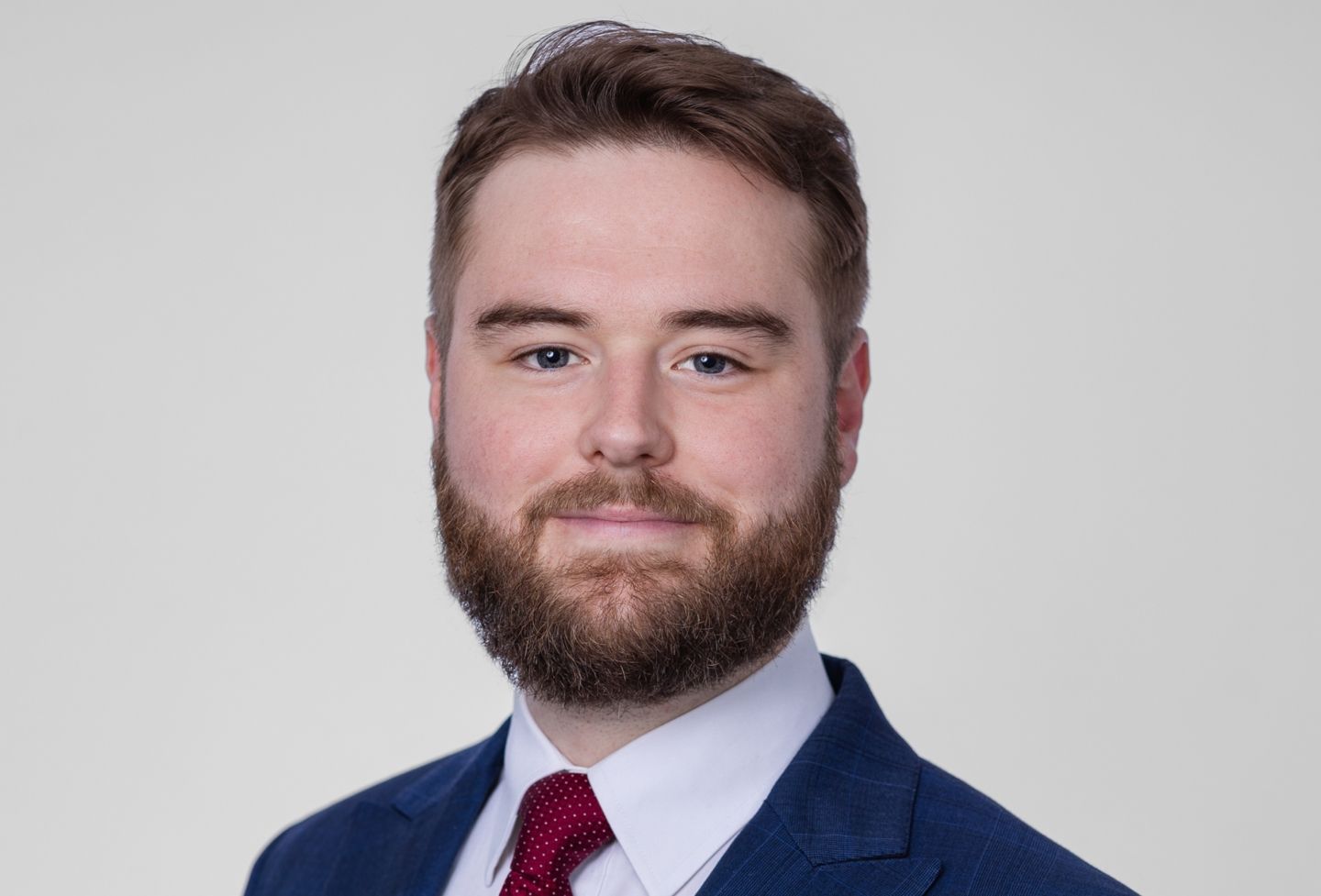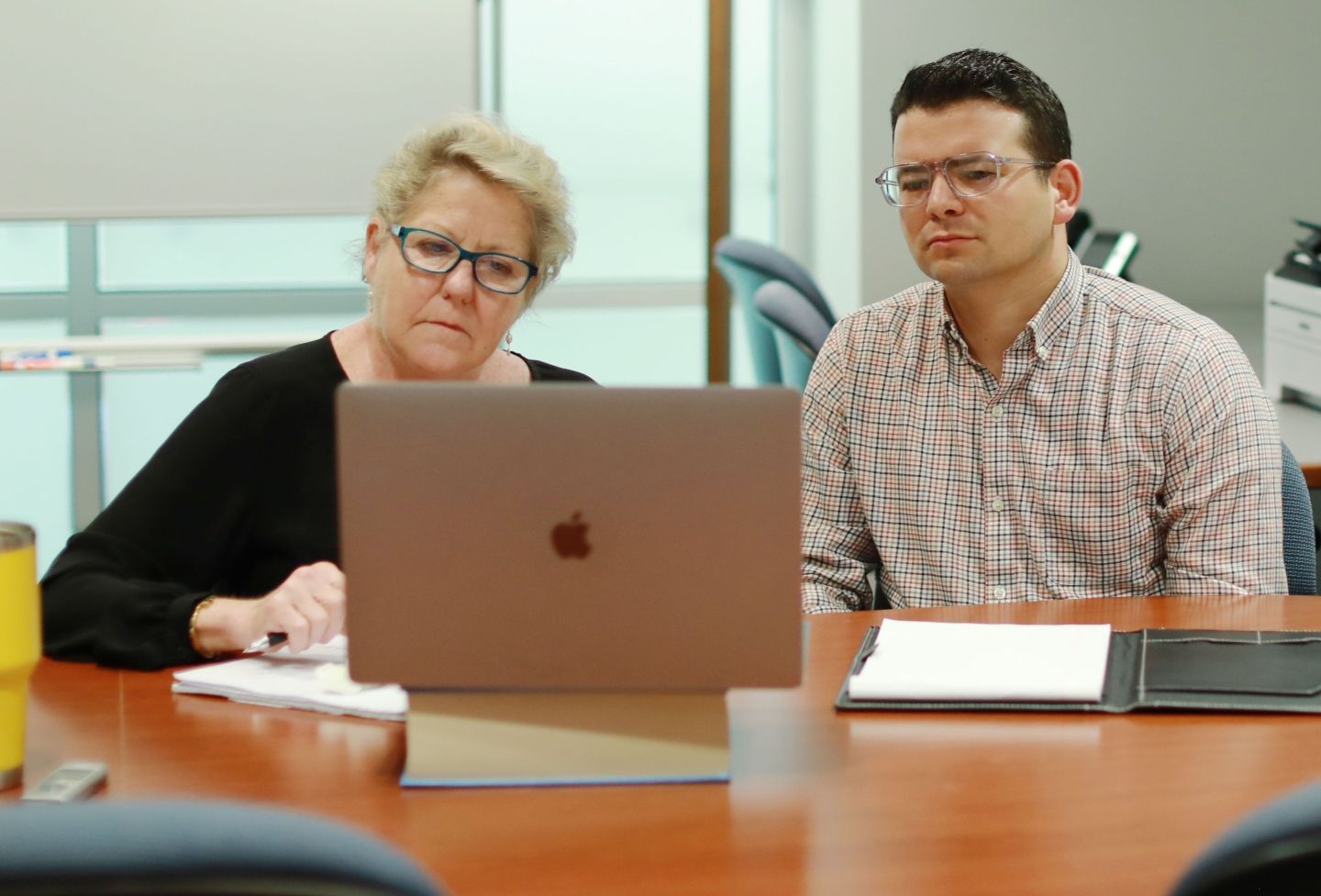Elysse Stolpe ’14 watched with frustration as four medal-winning gymnasts testified before the Senate Judiciary Committee on Sept. 16, recounting the FBI’s mishandling of their sexual assault charges against Larry Nassar, a USA Gymnastics team doctor.
The University of Virginia School of Law graduate, now an assistant commonwealth’s attorney for the city of Waynesboro, Virginia, and a Law School lecturer, specializes in prosecuting cases involving domestic violence, sexual assault, child sex abuse and sex trafficking. In addition, she serves as a commissioner on the Child USA Game Over Commission, which formed in the wake of revelations that Nassar had abused young women, possibly hundreds of them, under the guise of “medically necessary treatment.”
A few days after the testimony, Stolpe had submitted a 20-page response to the commission, detailing the FBI’s multiple failures to follow their own protocols, including not interviewing the initial three complainants promptly, not performing interviews in neutral settings according to trauma-informed protocols and not involving a child advocate to protect a victim who was a minor.
“There was also failure to refer case to local authorities when FBI agents believed no federal crime was committed,” she said. “It became a jurisdictional hot potato. If you think a state crime has been committed, you refer to state authorities. The failure to do that allowed the investigation to languish for over a year, which allowed the abuse of 70 athletes in that interim.”
She pointed out that Nassar snowed authorities because he shrouded his abuse under the guise of medical treatment.
“They could have asked another doctor about the so-called treatment,” she said. “If I had a case like this, I would call up a medical member of my multidisciplinary team to see if it’s legitimate medical practice.”
That collaborative approach — involving not only law enforcement, but also social workers, child advocates and medical experts in preparing her cases — is what also leads Stolpe to successful prosecutions in the Commonwealth Attorney’s Office and gives her the satisfaction of knowing she’s helping her community, she said.
“The types of victims you work with in that type of crime are at a particularly vulnerable stage,” she said. “We take an evidence-based approach to prosecution, and that requires a lot of interdisciplinary collaboration. How do we make that victim’s life better? And how do we get the offender treatment as well, in order to make the community safer?”
One of her collaborators is a 6-year-old therapy dog, Clue, a corgi who accompanies Stolpe to work daily. “I’ve had her since she was 9 months old,” Stolpe said. “I knew I wanted her to work with victims and witnesses, so I found a breeder whose dogs have the disposition to help.”
 Therapy dog Clue helps Stolpe work with victims and witnesses.
Therapy dog Clue helps Stolpe work with victims and witnesses.
Clue’s first case involved a retired magistrate prosecuted for sexually abusing a 16-year-old child.
“In the sentencing hearing, the girl wanted to be present,” Stolpe recalled. “I read her impact statement while Clue sat with her in the gallery, licking the tears off her face.”
Stolpe didn’t begin her career as a prosecutor. She had an offer to join McKenna Long and Aldridge in Washington, D.C., after law school.
But during her third year, the Prosecution Clinic placed her in the office of the Waynesboro Commonwealth’s Attorney. “Within two weeks of starting, I was handling cases on my own,” she said. “I realized, even as a law student, I was making a difference in the community. It felt good to work with real people.”
Still, after graduation, she accepted the firm’s offer, passed the bar and started working that fall on cases involving international arbitration and complex litigation. The next summer, McKenna Long merged with Denton’s. Her firm went from 600 attorneys to 6,000, making it the largest in the world.
“I came to realize that, if I looked at myself in 10 years, that wasn’t where I wanted to be,” she said.
Meanwhile, her supervisor in the Prosecution Clinic, David Ledbetter, who had earned his undergraduate degree at UVA in 1990, had become commonwealth’s attorney in Waynesboro. In the fall of 2015, he reached out to Stolpe and said he had an opening for an assistant commonwealth’s attorney.
“By November 2015, I was back in the Commonwealth Attorney’s Office, taking a big pay cut in exchange for quality of life,” Stolpe said. She benefited from the UVA Law loan forgiveness program, aimed at helping alumni in public service careers, which requires a graduate to go into a qualifying job within two years.
Job flexibility was a major draw, too. “People ask me how I manage the stress of what I do,” Stolpe said. “A, I bring my dog to work, and B, I ride horses.”
“Ride horses” is an understatement. She owns a 9-year-old Belgian Warmblood, “Leia,” and the two spend every weekend together, competing in show-jumping up and down the East Coast.
 Stolpe jumps with her Belgian Warmblood, Leia, at the Upperville Colt and Horse Show this year. They will compete again during the winter circuit at the World Equestrian Center in Ocala, Florida. Courtesy photo
Stolpe jumps with her Belgian Warmblood, Leia, at the Upperville Colt and Horse Show this year. They will compete again during the winter circuit at the World Equestrian Center in Ocala, Florida. Courtesy photo
Originally intending to pursue equine law, Stolpe said, Professor Rachel Harmon, who directs the Center for Criminal Justice, interested her in criminal law.
“I took every criminal law class I could with her,” she said. “The fact that she is so dedicated to studying issues around police misconduct informed my work as a prosecutor. There are ways we can improve policing, but we also must be aware of the real on-the-ground problems and barriers the police face in hiring, funding, grievances. It’s a systemic issue.”
Harmon was also the first one who told her she could pursue riding and law at the same time. “Your quality of life supports your law career,” Stolpe said.
Prosecutors and law enforcement are sometimes perceived as being on one team, but Stolpe says it’s not so. “As commonwealth’s attorneys our duty isn’t to be on the police’s team. We collaborate but we are mindful of our duty as prosecutors to make sure the cases we’re bringing are strong from a constitutional perspective.
“I don’t represent individual victims. I don’t represent the police. I represent the community as a whole.”
One of her most satisfying cases involved a perpetrator who, before his conviction, was able to go on abusing his victims for years. A judge recently upheld his 27-year sentence.
“It took a village to prosecute that case,” Stolpe said. “I connected with the jury in explaining the trauma, why this victim might not have cried out the first time, how he was able to keep her silent. We are helping the victim rebuild her life, and we helped bring closure to the other people against whom he had committed crimes.”
Stolpe also is the chair of the board of directors for New Directions Center, a nonprofit dedicated to assisting survivors of domestic violence and sexual assault.
She recently found time to begin passing along some of the lessons she’s learned. She began teaching Trial Advocacy for the Law School during the spring 2020 semester, just as the pandemic took hold. Classes moved to the cloud, but so did court proceedings.
“I was having to prosecute by Zoom,” she said. “I told the students, as unfortunate as this is, you are getting the real-life experience.”
Founded in 1819, the University of Virginia School of Law is the second-oldest continuously operating law school in the nation. Consistently ranked among the top law schools, Virginia is a world-renowned training ground for distinguished lawyers and public servants, instilling in them a commitment to leadership, integrity and community service.


